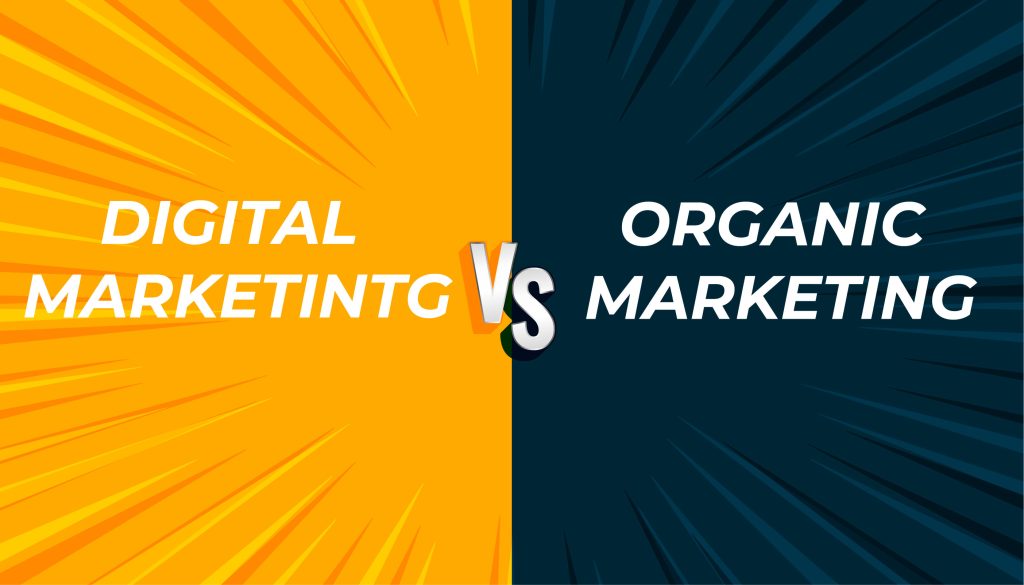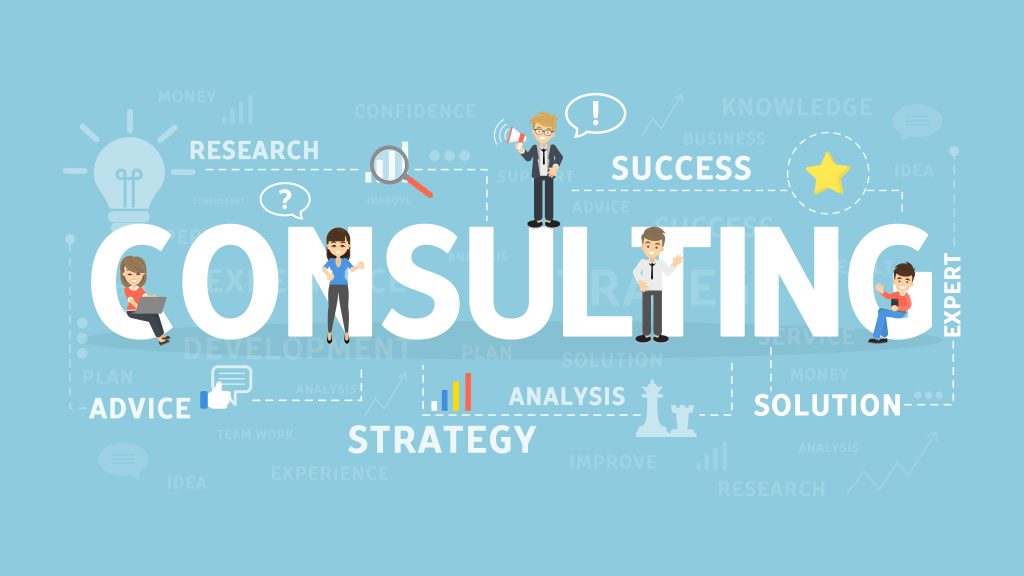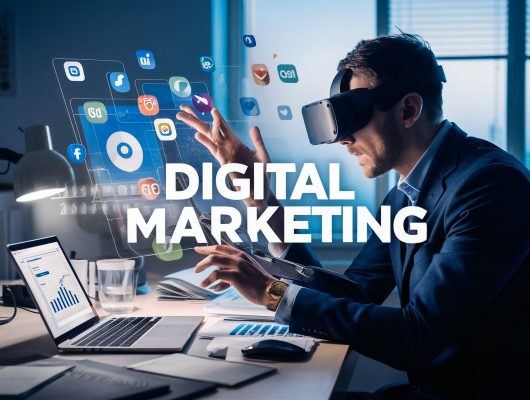In the modern business landscape, marketing strategies have evolved significantly, with digital marketing and organic marketing becoming two of the most prominent approaches. Both strategies offer unique advantages and can be powerful tools for business growth when used effectively. However, understanding the differences between digital marketing and organic marketing is crucial for developing a well-rounded marketing plan that aligns with your business goals. This article delves into Digital Marketing vs Organic Marketing the key distinctions, benefits, challenges, and best practices associated with digital and organic marketing.

Defining Digital Marketing
Digital marketing encompasses a broad range of online marketing activities that use the internet and digital platforms to promote products and services. This approach involves paid and unpaid strategies to reach potential customers and includes various forms of advertising, content creation, social media engagement, and more.
Paid Advertising: A significant component of digital marketing, paid advertising involves paying for ad placements on platforms like Google, Facebook, Instagram, and YouTube. These ads can be display ads, search engine ads (PPC), social media ads, and video ads.
Search Engine Marketing (SEM): SEM includes paid search ads that appear on search engine results pages (SERPs). By bidding on relevant keywords, businesses can place their ads at the top of search results, increasing visibility and driving traffic.
Email Marketing: Email campaigns target specific audiences with personalized messages, offers, and content. These campaigns can nurture leads, promote products, and encourage customer retention.
Social Media Advertising: Social media platforms offer targeted advertising options that allow businesses to reach specific demographics based on interests, behaviors, and other criteria. This type of advertising is highly customizable and can yield immediate results.

Defining Organic Marketing
Organic marketing, on the other hand, refers to strategies that focus on building a brand’s online presence without the use of paid advertisements. This approach relies on creating valuable content, optimizing for search engines, and engaging with audiences naturally over time.
Search Engine Optimization (SEO): SEO is a critical component of organic marketing, involving the optimization of website content to rank higher in search engine results. By using relevant keywords, creating high-quality content, and building backlinks, businesses can attract more organic traffic.
Content Marketing: Content marketing focuses on creating and distributing valuable, relevant, and consistent content to attract and retain a clearly defined audience. This includes blog posts, articles, videos, infographics, and other types of content that provide value to users.
Social Media Engagement: Unlike paid social media advertising, organic social media marketing involves posting content, interacting with followers, and building a community without the use of paid promotions. The goal is to create genuine connections and foster long-term relationships with your audience.
Word of Mouth and Referrals: Organic marketing also includes the natural spread of information about a brand through word of mouth, customer referrals, and positive reviews. These strategies are based on the trust and credibility that a brand establishes over time.

Digital Marketing vs Organic Marketing
While digital and organic marketing aims to increase brand awareness and drive business growth, their underlying goals can differ based on the strategies employed. So, That we can know Digital Marketing vs Organic Marketing properly
Short-Term vs. Long-Term Goals: Digital marketing is often used to achieve short-term goals, such as generating immediate leads, boosting sales during a specific campaign, or increasing traffic quickly. Organic marketing, on the other hand, is more focused on long-term growth, building a loyal customer base, and establishing brand authority over time.
Cost Implications: Digital marketing typically involves direct costs, such as paying for ads or sponsored content. While these investments can yield quick results, they require ongoing spending to maintain visibility. Organic marketing, though often more time-intensive, involves minimal financial investment, relying on the consistent creation of quality content and natural engagement.
Brand Building vs. Sales Generation: Organic marketing is highly effective for brand building and creating a strong, trusted presence in the market. Digital marketing, while also contributing to brand building, is more often geared toward direct sales generation and lead conversion.

Advantages of Digital Marketing in digital vs organic Marketing
Digital marketing offers several advantages that make it a popular choice for businesses looking to grow quickly and reach a wide audience.
Immediate Results: One of the most significant benefits of digital marketing is the ability to see immediate results. Paid ads can start driving traffic and generating leads as soon as they are launched.
Precise Targeting: Digital marketing allows for precise targeting of specific demographics, interests, and behaviors. This ensures that your marketing efforts reach the right audience, maximizing the return on investment (ROI).
Scalability: Digital marketing campaigns can be easily scaled up or down depending on budget and goals. This flexibility allows businesses to adjust their real-time strategies to optimize performance.
Measurable Performance: With digital marketing, every aspect of a campaign can be tracked and measured, from click-through rates to conversion rates. This data-driven approach enables businesses to make informed decisions and continuously improve their strategies.
There are so many other massive advantages to digital marketing. Learn more.

Advantages of Organic Marketing in digital vs organic Marketing
Organic marketing, while slower to produce results, offers a range of benefits that contribute to long-term business success.
Cost-Effectiveness: Since organic marketing doesn’t rely on paid ads, it is a cost-effective strategy that can yield significant results over time. The primary investment is in content creation and SEO efforts.
Sustainable Growth: Organic marketing builds a foundation for sustainable growth by focusing on long-term relationships with customers. By consistently providing value, businesses can attract loyal customers who will continue to engage with the brand.
Credibility and Trust: Organic marketing strategies, such as SEO and content marketing, help establish credibility and trust with your audience. High-quality content and a strong online presence can position your brand as an authority in your industry.
Long-Lasting Results: Unlike paid ads, which stop generating traffic once the budget runs out, organic marketing efforts can continue to drive traffic and engagement long after the initial work has been done.

Challenges of Digital Marketing digital vs organic Marketing
While digital marketing offers many benefits, it also comes with its own set of challenges.
High Competition: Digital marketing, especially paid advertising, is highly competitive. Businesses often compete for the same keywords, ad placements, and audience attention, driving up costs.
Ad Fatigue: With the proliferation of ads across all digital platforms, users may experience ad fatigue, leading to lower engagement rates in digital vs. organic marketing. This requires businesses to constantly innovate their ad strategies to maintain effectiveness.
Costly Over Time: While digital marketing can produce quick results, it can also become costly over time, especially if campaigns need to be continually funded to maintain visibility.
Dependence on Algorithms: Digital marketing success often depends on the algorithms of search engines and social media platforms. Changes to these algorithms can significantly impact the performance of paid campaigns, making it necessary to adapt quickly.

Challenges of Organic Marketing in digital vs. organic Marketing
Organic marketing, while effective for long-term growth, also presents several challenges.
Time-Intensive: Organic marketing requires a significant time investment, particularly in content creation, SEO, and community engagement. Results are typically slower to materialize compared to digital marketing
Unpredictable Results: The success of organic marketing strategies can be harder to predict as they rely on factors like search engine algorithms and audience behavior, which can change over time.
High Initial Effort: Building a strong organic presence requires considerable effort upfront, including developing high-quality content, optimizing for SEO, and actively engaging with your audience.
Limited Reach: Without the amplification provided by paid ads, organic marketing may have a more limited reach, particularly in the early stages of a campaign.

Integrating Digital and Organic Marketing
While digital vs organic marketing have their own distinct advantages and challenges, the most successful businesses often integrate both strategies into a cohesive marketing plan.
Complementary Strategies: Digital and organic marketing strategies can complement each other effectively. For example, a business might use paid digital ads to drive immediate traffic to a website while simultaneously working on SEO to improve organic search rankings over time in digital vs. organic marketing.
Content Amplification: High-quality content created for organic marketing purposes can be amplified through digital marketing channels. For instance, a blog post optimized for SEO can also be promoted through social media ads or email campaigns to reach a broader audience.
Data-Driven Decisions: Both digital and organic marketing provide valuable data that can inform overall strategy. By analyzing metrics from paid campaigns and organic efforts, businesses can refine their approach and allocate resources more effectively.
Building Authority While Driving Sales: While digital marketing drives immediate sales, organic marketing builds long-term authority. This dual approach ensures that businesses not only achieve short-term goals but also establish a lasting presence in the market. Digital vs Organic Marketing

Conclusion
Digital marketing and organic marketing each offer unique strengths that can drive business growth when used strategically. Digital marketing excels at delivering quick results, precise targeting, and measurable performance, making it ideal for short-term campaigns and immediate sales generation. On the other hand, organic marketing is a cost-effective approach that builds credibility, fosters long-term relationships, and delivers sustainable growth.
Ultimately, the most effective marketing strategy is one that integrates both digital and organic methods. By leveraging the strengths of each approach, businesses can achieve a balanced marketing plan that not only drives immediate results but also ensures long-term success. Whether you’re looking to boost your brand’s visibility, increase sales, or establish a loyal customer base, a well-rounded strategy that includes both digital and organic marketing is key to achieving your goals





2 Comments